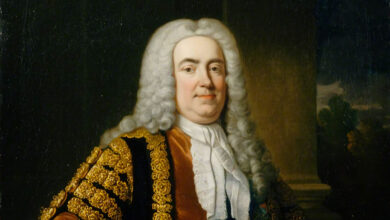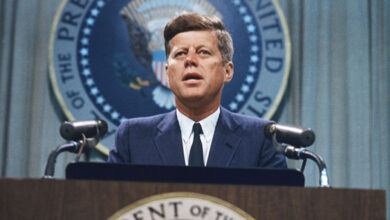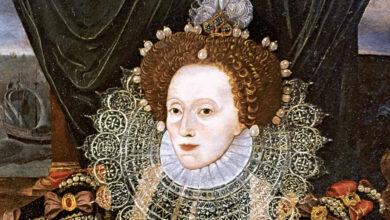Podcast: Play in new window | Download
Subscribe: Spotify | Amazon Music | Youtube Music | RSS
In the heart of the 17th century, England was a nation at war with itself, a stage ripe for the rise of a man like Oliver Cromwell.” This era was characterized by a whirlwind of religious and political turmoil. The Church of England was grappling with dissension within its ranks, while the monarchy was struggling to hold onto power amid increasing discontent. Simultaneously, the country was divided by class and religious affiliations, leading to heightened social tensions. The English Civil War, a devastating and divisive conflict, was a reflection of these turbulent times. Royalists and Parliamentarians clashed violently, each side fighting for their vision of England’s future. This unrest provided the perfect backdrop for a man like Cromwell to rise from obscurity. With the nation in crisis, there was a desperate need for strong leadership, for someone who could navigate the treacherous waters of this troubled period. “Thus, in these tumultuous times, a man named Oliver Cromwell began to make his mark on history.
Born into the middle gentry on 25 April, 1599, Oliver Cromwell was not destined for great power, yet great power he achieved. His early life was rather unremarkable, marked by a modest upbringing and a stint in Parliament. But the tide of his fate shifted with the onset of the English Civil War. Cromwell, a man of deep religious conviction, found himself at the heart of the conflict, siding with the Parliamentarians against King Charles the first. His leadership skills and strategic acumen were soon recognised and he rapidly climbed the ranks, eventually leading the New Model Army. His victories at Marston Moor and Naseby not only cemented his reputation as a formidable military leader but also turned the tide in favour of the Parliamentarians. But Cromwell’s rise didn’t stop there. Amid the tumult of war and political strife, he emerged as a key player in the trial and execution of Charles the first. This was a pivotal moment in English history, marking the end of an era of divine right monarchy. It was an audacious act, one that would have been unthinkable just a few years prior. Yet, Cromwell, driven by his belief in the sovereignty of Parliament, played an instrumental role in bringing the King to justice. With the execution of Charles the first, Cromwell had irrevocably changed the face of English governance.
In the power vacuum left by the monarchy, Cromwell found himself at the helm of a new political entity: the Commonwealth of England.” Suddenly, the humble farmer from Huntingdon was not just a military leader, but a political one too. As Lord Protector, Cromwell sought to bring about a godly republic, implementing policies that would steer England towards this vision. Despite the turmoil, Cromwell attempted to instil a sense of religious tolerance, a move that was both revolutionary and controversial for the time. However, his rule was far from peaceful. Military campaigns in Ireland and Scotland painted a stark contrast to his domestic policies, with the violent suppression of royalist uprisings leaving a blemish on his rule. Yet, regardless of the contradictions, there was no denying the impact of his leadership. His reign saw the first and only time in history that England was declared a republic. “Cromwell’s rule, though brief, was marked by significant changes in England’s religious and political landscape. He died on 3 September 1658, at the Palace of Whitehall in London. Oliver Cromwell, a man of contradictions, left behind a legacy that continues to be debated to this day. His influence is a complex tapestry of diverse perspectives, each reflecting a different facet of his character and actions. Some view him as a champion of liberty. They applaud his role in the fight against the monarchy, seeing him as a driving force behind the establishment of a republic in England. This perspective appreciates Cromwell as a defender of the rights of everyone. A revolutionary who challenged the status quo. Yet, there is another side to Cromwell’s legacy, one that paints him in a darker light. To these critics, Cromwell is a despot who imposed his will without regard for the rule of law. His brutal military campaigns in Ireland and his suppression of political opposition at home are often cited as evidence of this. Today, Cromwell’s legacy remains a subject of intense debate. His posthumous execution, a symbolic act of retribution by the restored monarchy, is a testament to the deep divisions he left behind. Yet in a BBC poll of the one hundred greatest Britons, he ranked among the top ten, indicating a continued respect for his contribution to English history. Whether viewed as a hero or a villain, Oliver Cromwell’s impact on English history is undeniable and his story continues to captivate us centuries later.
Podcast: Play in new window | Download
Subscribe: Spotify | Amazon Music | Youtube Music | RSS




